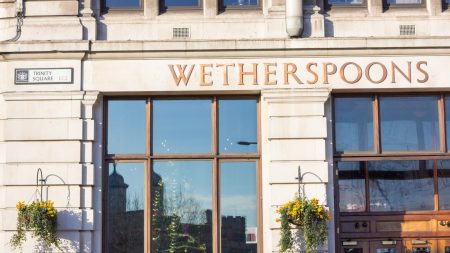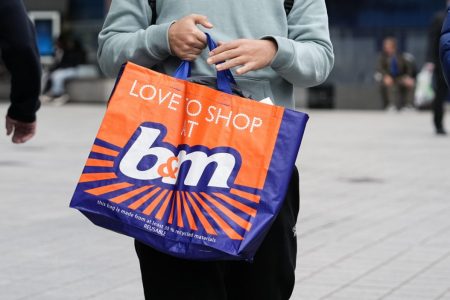The Original Factory Shop, a beloved discount retailer, is closing its Haverfordwest, Wales location on December 14, 2024, adding to a growing list of store closures this year. The company announced the closure on social media, expressing gratitude to the local community and staff for their support. Local shoppers expressed disappointment online, lamenting the loss of a valued bargain-hunting destination and praising the store’s friendly staff. In a bid to clear remaining stock, the Haverfordwest branch is hosting a 50% off sale, prompting some shoppers to plan last-minute visits for Christmas shopping.
This closure is not an isolated incident for The Original Factory Shop. Throughout 2024, the retailer has already shuttered seven other stores across the UK, including locations in Brightlingsea, Bodmin, Chepstow, Fakenham, Harwich, Mildenhall, Padiham, Taunton, and Deal. This trend follows a similar pattern of closures in the previous year, highlighting the challenges faced by brick-and-mortar retailers in the current economic climate. While experiencing contractions in some areas, The Original Factory Shop has also been strategically expanding, opening numerous stores in various locations across the UK since August 2023. This includes new locations in Kirkintilloch, Stonehaven, Blandford Forum, Haddington, Wetherby, Nairn, Ashbourne, Castle Douglas, Penrith, Inverness, Attleborough, Ayr, Ringwood, Perth, Lanark, and Peterhead, indicating a dynamic approach to adapting to market conditions.
The Original Factory Shop’s closures reflect a broader trend impacting the British high street, often referred to as a “retail apocalypse.” This phenomenon is largely driven by the increasing popularity of online shopping, which has significantly impacted in-store sales. Rising staff costs, coupled with decreasing foot traffic in traditional town centers, have squeezed profit margins for many retailers, making it increasingly difficult to operate physical stores profitably. This shift in consumer behaviour is forcing businesses to re-evaluate their strategies, leading to store closures and a search for more cost-effective operating models.
The decline of the high street is a complex issue with several contributing factors. The rise of online shopping offers consumers greater convenience and often lower prices, directly impacting the viability of physical stores. The COVID-19 pandemic exacerbated this trend, accelerating the shift towards online shopping as lockdowns forced consumers to embrace digital platforms. In addition, rising business rates, rent, and staff costs have further squeezed retailers, while local councils increasing parking charges in town centers have driven shoppers towards retail parks offering free and convenient parking.
Retail parks have become increasingly attractive to both shoppers and retailers. Their convenient locations, free parking, and often larger store formats offer a more appealing experience compared to traditional high streets struggling with declining foot traffic and increased parking costs. Major retailers like Next and Marks & Spencer have been actively relocating from high streets to retail parks, seeking larger, more cost-effective spaces and better access to customer bases. This migration reflects a broader shift in consumer preferences and the changing landscape of retail.
The closure of prominent retail chains like Wilko, Debenhams, Topshop, Dorothy Perkins, and Paperchase further illustrates the challenges facing the high street. While some brands are acquired after bankruptcy, new owners often prioritize online sales and drastically reduce the number of physical stores. This often results in the loss of jobs and further diminishes the vitality of town centers. While The Original Factory Shop’s closures contribute to this concerning trend, its simultaneous opening of new stores suggests an adaptive strategy aimed at navigating the evolving retail landscape.











